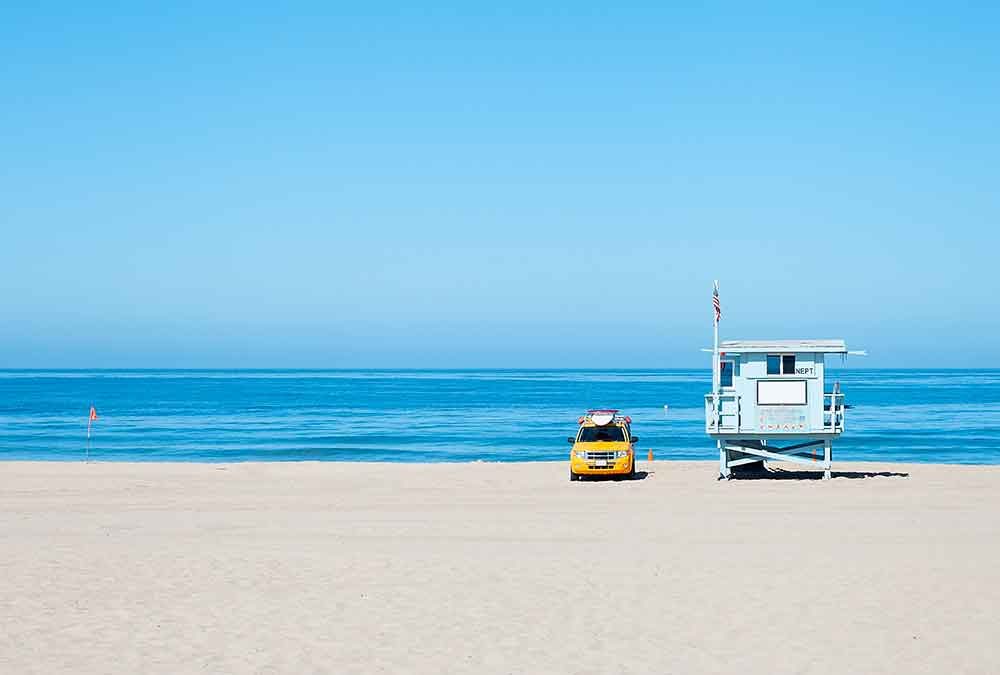The beaches in Southern California are wonderful places to spend a day, whether it is swimming, surfing, exploring tide-pools, or any of the other many activities. By always following a few simple safety tips you can prevent some of the more common accidents and injuries that occur in the ocean environment. Each beach has its own set of characteristics which attract thousands of visitors each year. It is important however, to always keep in mind that with each beach along the Southern California coast, there are a variety of hazards that are not always obvious.
As lifeguards and waterman it is our responsibility to ensure the safety of beach visitors by preventing, reporting, and monitoring hazards, as well as assisting those that in need of help while in danger. All of the Malibu Makos programs include ocean safety education and in the past year we have created the public and private school programs OCEAN SAFETY EDUCATION and SURF PE to help further educate your school, group, or organization about the ocean.
Review the following ocean safety tips as they can help make your next visit to the beach a safe, fun, and memorable one. At the end there is a list of ocean safety topics of which you may click on for more detailed descriptions and recommendations.
ALWAYS SWIM NEAR A LIFEGUARD
If your adventure includes a trip to the beach, play it safe and choose a beach with lifeguard protection. Call ahead and ask for their assistance in choosing the safest area.
IF YOU NEED HELP WAVE YOUR HAND
Playing in the ocean can be fun, but the water can be dangerous. If you get into trouble while in the water, signal for help by waving your hand and arm above the water towards the shore.
HOW TO GET OUT OF A RIPCURRENT
Rip currents are rivers of water that can pull you out to sea. If you become caught in a rip current, DON’T PANIC. Swim parallel to shore or tread water until help arrives.
DRINKERS ARE SINKERS
Alcohol and swimming don’t mix. If your destination allows alcoholic beverages please remember: DON’T DRINK AND SWIM!
OBSERVE ALL WARNING SIGNS
Each year thousands of beach visitors are rescued from life-threatening conditions. Prevent this from occurring to you by observing all warning signs and asking the lifeguard for safety advice.
SUPERVISE YOUR CHILDREN
When lifeguards are on duty, they are watching for problems, but can not see everything. If you bring small children to the beach, watch them carefully. Tragic water accidents can change your life forever.
ALWAYS REMEMBER – SAFETY FIRST
By following these safety tips you can help make sure that your visit to the beach is both safe and fun. These terms are not here to frighten anyone from attending the beach. Instead they serve as an educational tool to prevent you having an unsafe trip to the beach. Be sure to click the following terms and descriptions from United States Lifesaving Association and the Malibu Makos Surf Club to help increase you and your child’s ocean knowledge and make your next visit to the beach safer.
OCEAN CONDITIONS
Rip Currents
Long shore Currents Shoreline and Beach Drift
Ocean Waves
Shore-break Surf
Swell
Tides
Red Tide
Water Temperature
Winds
Flag Conditions
BEACH HAZARDS
Piers and Jetties
Submerged Rocks/Reef
Trash
In-shore Holes & Sandbars
Surf/Swim Areas
Beach Activities
Marine Life
Fires
Boats
Beach Vehicles
FOR YOU AND YOUR CHILDS HEALTH
Learn to Swim
Sun Exposure
Dehydration

